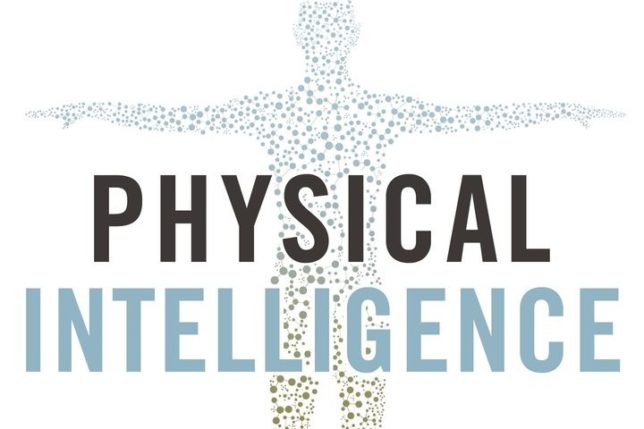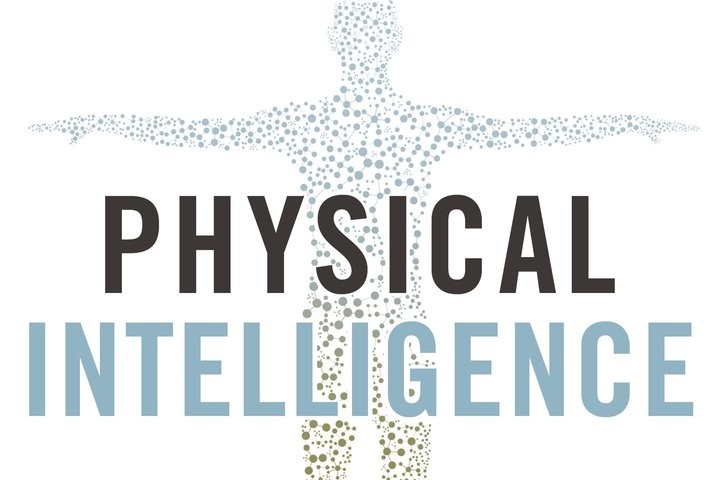Claire Dale and Patricia Peyton, co-authors of Physical Intelligence, discuss how eight key neurotransmitters and hormones can enhance your health and wellbeing when the right chemical balance is achieved in the brain and the body.

Hundreds of chemicals racing through each of our bloodstreams dictate how we think, feel, speak and behave. Most of us operate largely at the mercy of those chemicals – experiencing reactions, emotions and thoughts without realizing that we can actively manage them. Physical Intelligence is the ability to detect and actively manage the balance of those chemicals using breathing techniques, movements, thought processes and ways of communicating. When the chemical balance is right, we call it the ‘Winning Cocktail’. Let’s focus on eight key chemicals:
Acetylcholine
On Saturday, after a challenging week, you realise that you’re breathing out in long sighs and feeling relief. This is your re-balancing and renewal system kicking in, driven by acetylcholine, responsible for energy renewal, recovery from pressure, learning and memory. The signature feeling of acetylcholine is balance.
To stimulate acetylcholine, take a hot bath with Epsom salts. You’ll absorb minerals such as magnesium and potassium (vital for renewal), your energy will come flooding back and you’ll sleep better.
Adrenalin
We’ve all experienced an adrenalin rush. The primary functions of adrenalin are to increase heart rate and blood flow in survival situations and provide the muscles and brain with a burst of energy and strength to facilitate immediate action. Adrenalin creates excitement, activation and speed but also can leave us feeling overly excited or nervous, making it difficult to communicate or think clearly. The signature feelings of adrenalin are fear or excitement.
If you feel nerves building up, don’t just sit there: move, shift position, walk, shake out your legs and arms to disperse adrenalin.
Cortisol
If you worry or feel anxious, react impatiently or angrily, feel concerned about the future, often blame others or think things are always your fault, that is high cortisol speaking. Cortisol is critically important – its positive effects keep us alive, numbing pain so that we can fight even if injured. However, being under pressure or in a ‘fight or flight’ environment for a sustained period, increases cortisol, leading to over-arousal and anxiety; we then underperform and make poor decisions. The signature feeling of cortisol is anxiety.
If you lash out and regret it later or bottle it up and ruminate, either way, it’s only cortisol. Take a deep breath, acknowledge the pressure, but say, “NO” to letting it control you.
DHEA
Dehydroepiandrosterone is the high-performance chemical, supporting vitality, longevity, stamina, long-term memory, responsiveness, and cognitive, immune system, and heart–brain function. DHEA drops after age 30 and is accelerated by stress/high cortisol, leading to premature aging. The signature feeling of DHEA is vitality.
Synthetic DHEA is a banned substance for Olympic athletes, yet we can make it every day using paced breathing technique. Find a breath-pacer app – increase the amount of time you spend daily using regular, paced breathing.
Dopamine
Have you ever felt disappointed if you missed out on concert tickets or didn’t get that promotion? Those feelings are generated by a lack of dopamine. Dopamine is the great motivator. When we get it, we prioritise behaviour to make sure we keep getting it – staying up too late to binge watch your favorite television programme or eating an entire bag of crisps. It can feel so good, yet be so bad for us. The signature feelings of dopamine are pleasure and need.
STOP! Find something to enjoy and appreciate in this very moment. You just created a ‘reward’ and, in doing so, have given yourself a natural dopamine boost.
Oxytocin
Think of a time when you liked being somewhere, felt safe and included, and believed that people were looking out for you. That’s oxytocin being released. Oxytocin levels fluctuate in relation to our perception of whether we are in the ‘in group’ or ‘out group’, whether we feel safe or threatened. Oxytocin enables us to feel responsibility to others, to feel stronger together and facilitates social bonding. The signature feeling of oxytocin is belonging.
We can boost oxytocin by empathising with others to create harmony or manage conflict. Send a text right now to someone with whom you haven’t spoken in a while. Ask how they are doing, ask for their advice, or offer to help. You just boosted your oxytocin. You’ll feel even happier when they reply!
Serotonin
Serotonin influences levels of happiness, status, satisfaction and well-being and is important for the immune system and deep-seated confidence. Smiling and laughing releases serotonin in ourselves and others and is released when we eat bananas and high quality dark chocolate. The signature feeling of serotonin is happiness.
Any form of meditation boosts serotonin – mindfulness, a yoga breathing practice, Transcendental Meditation – or just sitting quietly and focusing on your breathing every day for ten minutes.
Testosterone
Testosterone (along with dopamine) drives our desire to achieve and compete. It enables risk tolerance and confidence and is vital for feeling empowered. When you have thoughts like I did it! testosterone levels rise. The signature feelings of testosterone are power and control.
We can adjust testosterone levels with good posture and resistance-based physical exercise. The next time you achieve something good, put your arms in the air and say ‘YES!’ Feel the elation!
Combinations of these chemicals can make or break our success. The more we understand the neuroscience that underpins our behaviour, the more we can exercise control over the balance of chemicals that we can influence, enabling us to achieve more, stress less and live more happily.
About the experts
 A well-known British dancer and choreographer, Claire Dale founded the Claire Russ Ensemble, a contemporary dance company which toured Europe for 15 years, before becoming a communications tutor at RADA Business, specialising in leadership training. She has spent a lifetime working with and researching the body – first as a dancer and artistic director, then as Founding Director of Companies in Motion.
A well-known British dancer and choreographer, Claire Dale founded the Claire Russ Ensemble, a contemporary dance company which toured Europe for 15 years, before becoming a communications tutor at RADA Business, specialising in leadership training. She has spent a lifetime working with and researching the body – first as a dancer and artistic director, then as Founding Director of Companies in Motion.
 Patricia Peyton has spent 30 years working with Fortune 100 and FTSE 1000 organisations globally to help individuals and teams improve their performance. She is the Managing Director of Sphere International and has dedicated her career to helping individuals and teams enhance their performance through leadership, sales and communications consulting and training. She sits on the Board of Trustees at Emerson College in the US, as well as being a Director of Companies in Motion.
Patricia Peyton has spent 30 years working with Fortune 100 and FTSE 1000 organisations globally to help individuals and teams improve their performance. She is the Managing Director of Sphere International and has dedicated her career to helping individuals and teams enhance their performance through leadership, sales and communications consulting and training. She sits on the Board of Trustees at Emerson College in the US, as well as being a Director of Companies in Motion.
Claire Dale and Patricia Peyton are the authors of new wellbeing book ‘Physical Intelligence’ (Simon & Schuster), available now in ebook and hardback, priced at £14.99

